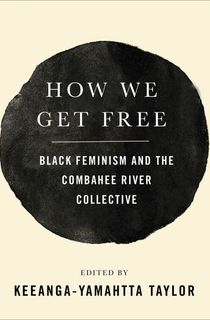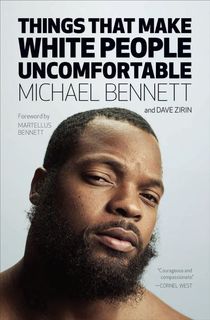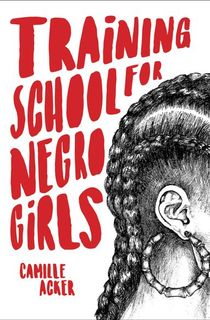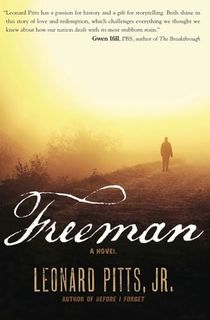Although the Emancipation Proclamation had “officially” ended slavery over two years before, it wasn’t until June 19th, 1865 in Galveston, Texas that it was announced the last of those slaves were, finally, free. But until very recently (too recently, some might say), the significance of that fateful Monday morning and the news it brought to 250,000 souls was largely unknown, except to the most dedicated of historians.
In the more than 100 years since, Black artists and writers like the ones listed here have gone to great pains to show their audiences the true historical realities of chattel slavery, and why the anniversary of its ending is a day worth celebrating.

How We Get Free
Collaborative in nature, revolutionary in its rhetoric, and vibrating with cultural insight, How We Get Free: Black Feminism and the Combahee River Collective was initially published in 2012, then again in 2017. Taylor’s interviews with the founders of the Combahee River Collective, one of the most influential Black women’s liberation groups of the mid-20th century, comprise most of the text, with members reflecting on their radicalization from a young age learning about national history and politics, and the struggles they faced as Black revolutionary feminists.
Juneteenth marks a time to celebrate the freedom to be our whole selves–had these women not boldly embraced that same spirit of self-determination, we would not have benefited from the invaluable work they’ve done, and they would not continue to inspire activists of today and tomorrow.
Related: 28 Books by Black Women

Things That Make White People Uncomfortable
Published in 2018, Award-winning athlete Michael Bennett pulls no punches in this scathing, almost memoir-esque critique of the systems that he has spent his life working within and without. Bennett tackles (pun not intended) several issues within the culture of professional sports in particular, taking care to evaluate the relationship Black athletes have with the NFL and NCAA.
To read Bennett’s words is to read the words of a Black man who understands the hierarchical nature of race relations in this nation to such a degree it may make someone who is unfamiliar with this perspective rather uncomfortable—hence the title. Similarly, one who is unfamiliar with the holiday of Juneteenth and comes to learn its history may find themselves faced with an uncomfortable realization—that perhaps they don’t know nearly as much as they thought.

Training School for Negro Girls
To leave space for quietly powerful moments like the ones Camille Acker showcases in the stories collected in Training School for Negro Girls is to leave space for the best parts of ourselves. Published in 2018 and based largely in or around the Washington, D.C. area, the stories in Training School feature characters who find themselves surrounded by stereotypes and faced with the choice to conform or defy in a myriad of fashions.
One of the works’ major themes is holding onto an authentic sense of self amidst a world that expects one to fall into neatly defined categories. The holiday of Juneteenth allows us to reflect on the death of a world where deviation from a single category (slave) was met with vicious reprisal, and the birth of one where we might embrace and celebrate our ability to be more than just a thing to be owned.

Freeman
Dealing directly with the immediate aftermath of the Civil War, Leonard Pitts’ novel Freeman, published in 2012, confronts the almost paralyzing question of self-determination faced by a former slave. The protagonist of the novel, having run away with his son to Philadelphia over a decade before, leaving his still-enslaved wife behind in Mississippi, decides to return to the South to rescue said wife from bondage upon hearing of the war’s end.
Although the story is fictional, Pitts doesn’t hesitate to truthfully illustrate how, in spite of all the slaves being “officially” freed by law, many slaveowners still clung to what they believed to be their “property.” Unfortunately, this was the case in Texas, with many plantations either defying the order or withholding the news entirely for as long as they could. Nonetheless, even if Juneteenth isn’t the actual day the last slave was freed, it still marks a major turning point in our nation’s history.

Kindred
In the decades since its original publication in 1976, Kindred has been widely recognized as one of the greatest works of science fiction written in the 20th century. The story, modeled on the slave narratives of the 19th century, follows a contemporary young Black woman who is transported through time to antebellum rural Maryland. Her journey through time and space is as harrowing as it is educational.
Butler expertly juxtaposes the differing historical contexts, allowing the reader to share in her protagonist’s alienation and bewilderment in what she sees and experiences. Through this story, the spirit of Juneteenth and what it represents becomes all the more relevant; the more we learn about the level of dehumanization and terror wrought by the institution of slavery, Black joy and exuberance in freedom becomes all the more vital.
Related: 9 Afrofuturism Books That Explore the Past, Present and Future

The Life and Times of Frederick Douglass
Life and Times of Frederick Douglass, Douglass’ final and most forthcoming memoir, was originally published in 1882, then again with revisions in 1892. It is the only one of Douglass’ memoirs that covers his time during and after the Civil War, as well as providing more detail about what life was actually like for an enslaved person (more detail than was possible in his first two, at least).
Several episodes in the memoir, including his meetings with Presidents Lincoln and Garfield, highlight Douglass’ unique position in American history as a former slave-turned-scholar. Juneteenth provides an opportunity to reflect on the indelible contributions of Black scholars like Douglass, and how stories like his, inspiring as they are, were forged in the flames of institutional injustice.
Related: 30 Must-Read Books by Black Authors

John Brown
There was a time in American history where even imagining a nation that had abolished chattel slavery was, at best, blasphemy, and at worst, a capital offense. But among those abolitionists who dared to dream, one man stands apart in his ferocity and singular moral fiber: John Brown.
W.E.B. DuBois’ 1909 biography is utterly comprehensive, discussing everything from Brown’s early life, his radicalization, and his work as an abolitionist with an understandable reverence. Although he was executed in 1859 for his role in the raid on Harper’s Ferry, John Brown’s efforts to bring true justice and freedom to the land left a clear impact on the cause to abolish slavery. Unfortunately, Brown would never live to see the ideas he fought so hard for come to fruition, but DuBois’ meticulously detailed biography allows one to appreciate how hard he fought so that there might be a day when Black people everywhere might celebrate their freedom from bondage.
Related: The 10 Best Biographies and Memoirs for Every Kind of Reader

The Bondwoman's Narrative
Those familiar with the literary genre of slave narratives might cite Incidents in the Life of a Slave Girl by Harriet Jacobs as one of, if not the most prominent example written by a woman. However, The Bondwoman’s Narrative, uncovered by noted scholar Henry Louis Gates Jr. and authenticated/published in 2002, is believed to be one of the very first novels written by a Black woman.
The manuscript was discovered, miraculously, in its entirety, and is closer in form to a novel rather than a memoir, unlike most slave narratives written at that time. In the novel, Hannah Crafts provides a fictionalized account of her life as a slave and her daring escape from bondage to freedom, displaying influences from contemporary literature and not hesitating to explore the complex emotions tied to her circumstances. It is a singular text that, like Juneteenth itself, has only recently begun to be recognized for its historical and cultural importance.
Related: How Former Slave Elizabeth Keckley Befriended the Lincolns




